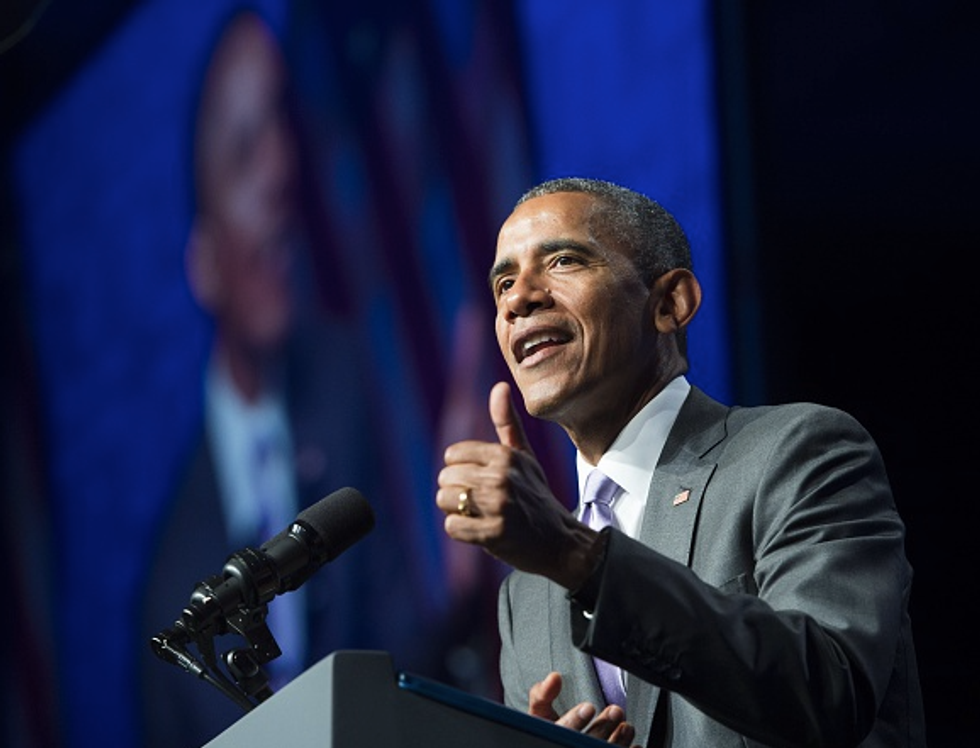
Photo: Saul Loeb/AFP/Getty Images

Most all the opponents of Obamacare are disappointed that the Supreme Court preserved federal subsidies for health insurance exchanges in King v. Burwell, effectively saving health care reform’s hash.
If it helps, I’ll recite the horrible things about the court’s decision before I remind you that you’re missing the point.
Yes, the court ignored the literal wording of the law to accommodate the intentions of some of those who sloppily crafted the legislation, while ignoring the intentions of others who said subsidies should only go to state-run exchanges.

No, this doesn’t mean the end of the rule of law and the separation of powers. Look at the other rulings the court has made this session: They haven’t adopted a “words have no meaning” stance on what laws say. It might not make you feel better about the King v. Burwell ruling, but case law has yet to descend into chaos.
The point is, you hated Obamacare long before you even heard about King v. Burwell, and even before the legislation was passed, remember? You didn’t hate Obamacare because it provided subsidies to federally-managed exchanges in contradiction to the legislative text.
No. You hated it because it mandated that everyone buy expansive and expensive health insurance, and punished you if you didn’t; because it represented $2 trillion in spending over a decade once the subsidies kicked in (assuming it didn’t go over budget, like most every other government health care initiative); because it drove up premiums and deductibles, cost people their preferred coverage and doctors, and came with the dubious promise of (among other dubious promises) cutting deficits.
Well, guess what? The court’s ruling changed precisely none of that. King v. Burwell was always like getting Al Capone on the technicality of tax evasion, rather than on being a gangster.
The fundamental problem with Obamacare is still the implementation of the notion that – as President Barack Obama said in the wake of the ruling – “health care is a right.”
And the problem is basically this: If you have a right to health care, then that creates an obligation on everyone else to provide you with health care. However, you’re not better than anyone else. If you have a right to health care, so does everyone, which means you have an obligation to contribute to their getting health care, too.
This is where the mechanics start to fall apart. Granted, there are people who, due to age or disability, can’t reciprocate and help provide health care in return for the health care they receive; they’re legitimate objects of compassion. But there are others who see the compassionate project of giving aid to the needy and would rather be on the receiving end of this venture than the giving one. On some level, they decide they’d rather be on the selfish side of altruism.
The free market is the antidote to this attitude, because it demands reciprocity: I won’t provide you with any goods and services unless you provide me some of equal value. The free market is such a great motivator, and creates such wealth, that we can then skim a little off the top to pay for the welfare of the aforementioned few who genuinely can’t pay their own way.
Obamacare has made a hash of this. The individual mandate (which Obama opposed in 2008) was supposed to be the way to get everyone to chip in, but government subsidies undo that by picking up the tab. And those subsidies come from taxpayers who are already paying for their own health care while paying for others’, too. Meanwhile, premiums for those taxpayers have gone up in order to pay for the newly-mandated “robust” health coverage, and are set to go up again.
Obama doesn’t factor this increase in premiums on the already-insured into the financial cost of Obamacare, he only looks at government spending. Just like he barely acknowledges the fact that Obamacare has resulted in people losing their plan and losing their doctor. Despite saying he clearly remembers the law’s “setbacks,” it’s clear that he ignores many of them.
As such, it’s no surprise that Obama concludes the law is doing more good than harm. But the rest of us aren’t ignoring them. You can hardly ignore a double-digit increase in your premiums, any more than if they’d gone down by $2,500.
So leave the legalities aside. The moral and economic case against Obamacare is still before the court. Obama may tout the law on the grounds that “America soars when we look out for one another,” but he still hasn’t figured out a way to finance the selfish side of altruism.
–
TheBlaze contributor channel supports an open discourse on a range of views. The opinions expressed in this channel are solely those of each individual author.